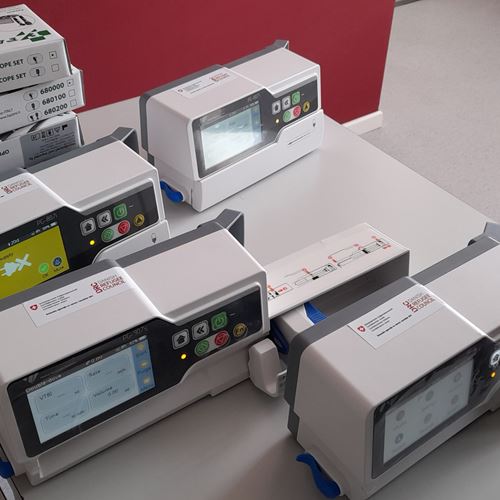Over the past three years, the Swiss Agency for Development and Cooperation (SDC) and the Danish Refugee Council (DRC) have built an established, constructive, and effective partnership with health institutions across Bosnia and Herzegovina (BiH), through the implementation of numerous projects. These have mainly focused on strengthening the capacities of the health system, improving the quality of services provided, and recognizing the additional challenges faced by the public healthcare system due to the mixed migration trends and the needs of local citizens.
‘Medical professionals are dedicated and do their job with a high professional standard despite many challenges. They are committed to providing equal and high-quality assistance to people who need help whether it's the local population or people on the move who may need help. Therefore, DRC is happy to continue to support the work of health institutions through the provision of medical equipment and devices, or through the renovation of needed departments,’ says Adela Softić, DRC Project Team Leader.
Feedback from representatives of health institutions points to medical professionals reporting that they feel enriched as professionals and as human beings in their work with migrants, refugees, and asylum seekers.
‘It is extremely important for us that we cooperate with international organizations such as the Danish Refugee Council and their staff who have valuable experience working with migrants, refugees, and asylum seekers. In the beginning, it was difficult, as we were not organized, and we also had language barriers. But with the establishment of close ties and cooperation with international representatives, it worked out in the end. Thanks to the more structured approach, we have been able to improve the quality of services in our health institution, both for the local community and for new target groups among people on the move and who are in need of medical support. All devices are distributed to departments and in use, helping us respond daily to those who need it the most,’ says Dr. Behzad Hadžić, Primary Health Centre Ključ.
